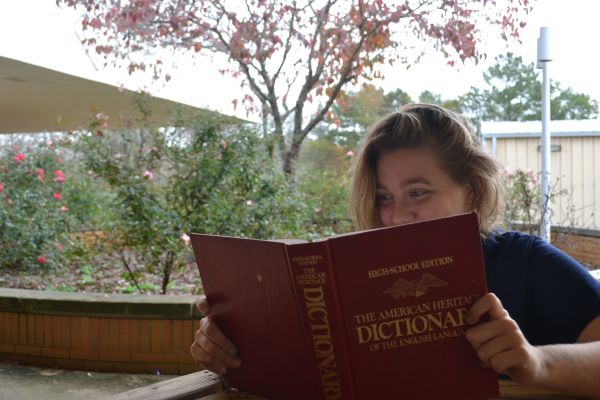New Words: Where Do They Come From?

WORDS, WORDS, AND MORE WORDS — Today’s culture has caused a renaissance in language.
November 9, 2015
The English language is constantly growing and changing. New words enter the language, and some fall out of the loop. Fresh trends in language are always appearing – think of abbreviations such as “OMG” or “LOL.” Texting vernacular has become a large part of communication. Slang terms integrate themselves into dictionaries and literature. Lexicographers, those responsible for compiling dictionaries, now study word trends on Twitter.
Here at Central, there are plenty of these trending words circulating. We take some “awesomesauce selfies” and hopefully won’t get too “hangry” before lunchtime. Mareia Dobbs, a ninth grade English and Foreign Language teacher at Central, loves new words… unless they are dumb.
“Generally, you get a new word when it’s printed by three different sources,” explained Dobbs.
However, the fast paced nature of social media makes this a bit more difficult to track. Dobbs believes that people often “make up words just to make up words,” meaning that some “made-up” words really have no business being words.
The language we use changes with every generation. Some of the most recent entries to the Oxford English Dictionary include “photobomb,” “smash-mouth,” and “twerking.” People with traditionalist views are often upset by this apparent invasion of slang into the dictionary. However, the English language has always been a fluid, changing language. William Shakespeare used over 1700 “made-up” words throughout his works that are now commonly used by just about everyone who speaks English. “Bedroom,” “skim milk, ” and even “elbow” are all words invented by Shakespeare.
“People in the medical profession have been [making up words] for years,” exclaimed Donna Sellers, the Head of the Math, Technology, and Science Academy at Central.
She went on to explain how many medical terms such as “distal” or “proximal” were made up to make communicating easier.
“If there is one word that can be used to describe an entire sentence or process, why not? English is an evolving language,” concluded Sellers.
Language does not only change in media or literature. People of all professions are always finding new ways to communicate their ideas in the best way. New words can often provide a better understanding of what a writer is trying to say.
Whether they come from Shakespeare or a favorite Twitter account, the words we use are valuable. Language is always moving with us, and we should accept these changes. No matter their merit, new words are here to stay.





